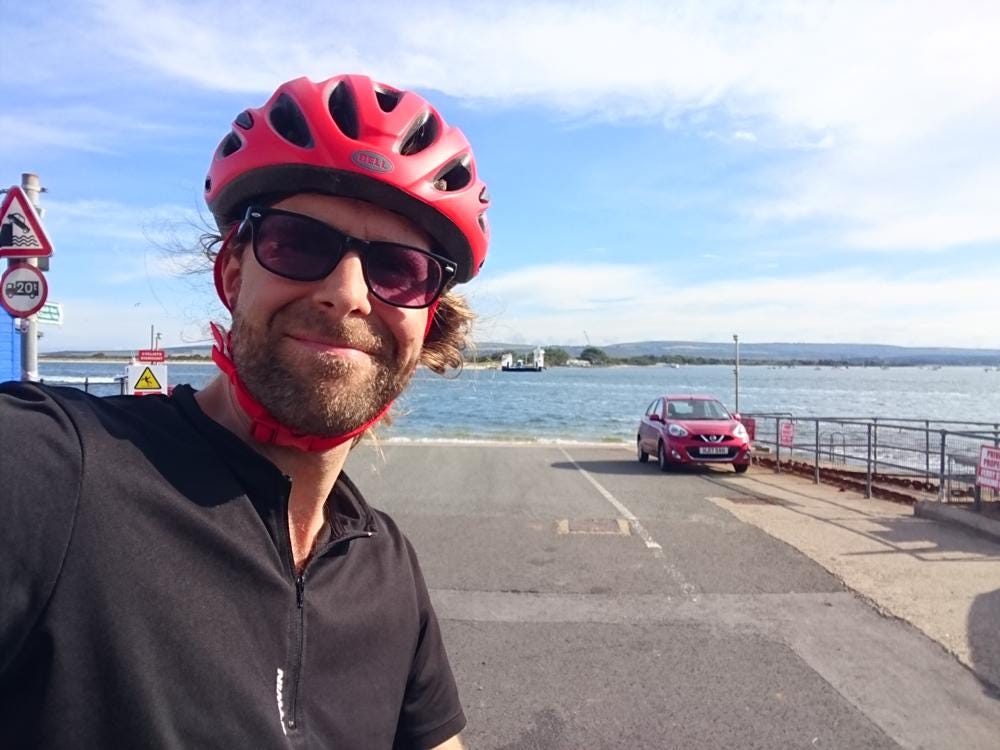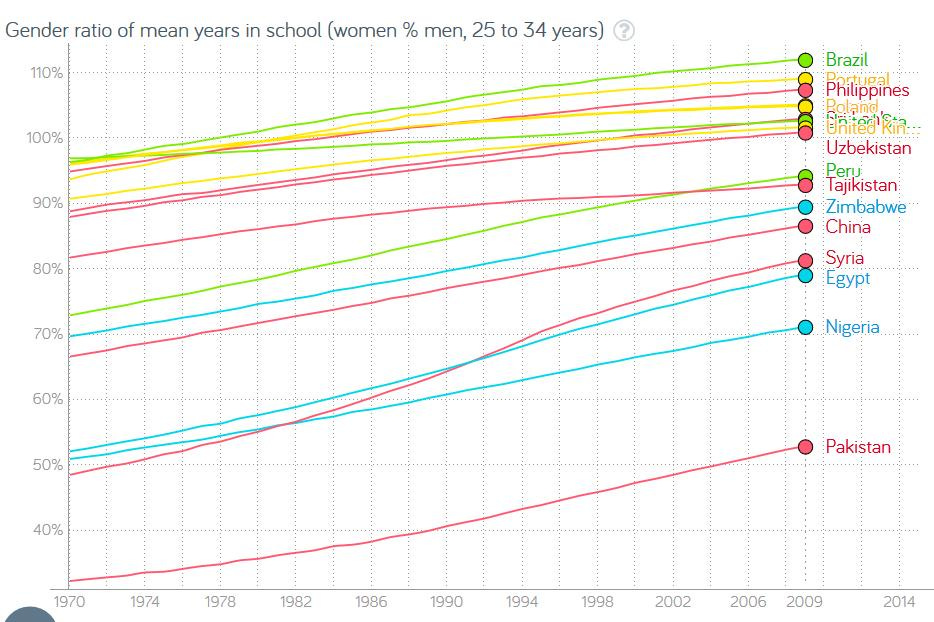Fugees
This week: World Refugee Day, chilli pickle, the Meaning of Liff, George's podcast and a screen recorder...
Happy Friday!
And forgive me for spending less than six hours on this week’s newsletter (only three, tut, tut, tut…) Hopefully it won’t negatively affect your reading experience.
Longish read
tl;dr
This isn’t the world we want to live in, and we are working to change it, but while refugees are forced to live like this, we will be there for them.
~ Help Refugees

Above: This is how easy it is to help? I’m in!
Join us for World Refugee Day
They say that every dog has its day—and some marketing departments take that literally. Next Friday, for example, is Pet Sitters International’s Take Your Dog to Work Day.
A quick scan of the internet tells me that Tuesday was Bloomsday (I’m listening to Ulysses at the moment as it happens). Wednesday, meanwhile, was World Day to Combat Desertification and Drought and yesterday was National Freelancers Day (I took it off work).
Today is World Sickle Cell Day. A sprinkling of sickle cell facts: sickle cell diseases are most prevalent in sub-Saharan Africa kill over 100,000 people a year—but the sickle cell trait offers some protection against malaria. An iron fist in a velvet glove.
But tomorrow is World Refugee Day. Ah—that explains my headline!
Why should I care?
If you’ve ever crossed a border without being beaten up, then, in my own personal opinion, you are in credit. The closest I’ve come is a hard stare from a Serbian border guard. I owe it to my passport to care.
There are now nearly 80 million displaced people in the world, including nearly 30 million refugees. That’s a lot of people—but not in a Daily Mail kind of a way. Pretty much zero of those people have come to the UK.
Okay, not zero: precisely 0.43 percent of the world’s refugees have found sanctuary on this ‘sceptred isle’. For comparison, Turkey hosts nearly 13 percent of those humans.
Uganda, a country with a GDP a hundred times smaller than the UK, hosts ten times as many refugees. I don’t know about you, but I did not know Uganda was that poor—or the UK so rich.
I don’t think we’re doing our bit, do you?
Yay, progress! (Except not for people fleeing war, sorry)
You might not believe it from the headlines, but many indicators of global quality of life are improving: the number of people escaping from extreme poverty, for example, or the number of girls accessing education, or child mortality rates.
In fact, take a few minutes to play around with all the good news using the awesome Gapminder tools. It’ll put a smile on your face. Then come back for the bad news…

Above: things are getting better. Source: Gapminder.
Unfortunately, for refugees, the world is a more hostile place today than it was a decade ago. As the latest UNHCR report states:
Over the last decade, only four million refugees were able to return to their native countries, compared with 10 million the previous decade. Roughly 0.5 per cent of the world’s refugees were offered resettlement in 2019.
0.5 percent?! Wow. We need more than one day to solve this problem. But let’s face it: there are other problems in the world, so…
Seeing as we’ve only got a day—let’s ride our bikes?!
This Saturday, in solidarity with refugees all over the world, Thighs of Steel and Help Refugees are riding their bikes all the way from London to Khora's home in Athens—about 2,000 miles.
I’m asking—nay begging—for your support. As cyclists, as donors, as megaphones.
🚴🏿 If you or your friends would like to join us for the day, then you can set up your own fundraising page here: https://help-refugees.secure.force.com/aroundtheworldsignup
💚 Or you can easily join in without setting up your own page by sending your lovely donors to the main fundraising page here: https://help-refugees.secure.force.com/aroundtheworldmain
The theme for this year’s World Refugee Day is Every Action Counts. Whether you ride 1 mile or 100; whether you raise £1,000 or simply chuck in a tenner from your own pocket, every action really does count.
It’s only one day of the year, but your contribution tomorrow could make a real difference to refugees—people who truly understand the meaning of the trite saying ‘out of the frying pan and into the fire’.
What will happen to the money?
We’re fundraising for Help Refugees, a grassroots organisation that grew out of the upsurge of empathy for migrants in 2015. Here’s what they say about how they spend the money raised:
Together, we are supporting hundreds of thousands of people—with access to medical care, sanitation, food, emotional support, and much much more. This isn’t the world we want to live in, and we are working to change it, but while refugees are forced to live like this, we will be there for them. Thank you so much for making this possible.
Thighs of Steel is the major donor to Khora, a voluntary organisation in Athens that exists to support displaced people, refugees, asylum seekers, homeless people and vulnerable groups in general.
During the Covid crisis, Khora volunteers have been preparing and delivering food to around 2,200 vulnerable people every other day. All this extra support costs money—as much as £24,000 per month. This remarkable act of solidarity relies entirely on money given by strangers.
Imagine…
I’ll finish with this little poem from Lemn Sissay, which the legends at Refugee Week are sharing as the jumping off point for the first of eight Simple Acts you can take to stand with refugees.
I will not limit myself
I will not be afraid
If it were not imagined
How else could it be made?
If it can be imagined, it can be made. Another world is possible.
This isn’t the world we want to live in, and we are working to change it, but while refugees are forced to live like this, we will be there for them.
Thank you.
Full marks to…
1. Lakshmibhai Pathak
Founder of Patak’s—a brand of Indian-inspired cookery foodstuffs. Specifically, Patak’s manufacture an excellent chilli pickle that has been entertaining my tastebuds for the past few months. Pathak was a refugee from Kenya.
2. Wyclef Jean
Fugees’ 1996 album The Score was the sound of David Charles realising, not only that some people had a very different experience of the world, but that they could put that experience into words and invite the rest of the world in. I never thought of this before, but the clue’s in the name, really: Wyclef Jean was a refugee from Haiti.
3. M.I.A.
Born in the UK to Tamil Sri Lankan refugees, I’ve got to include big thanks to M.I.A. here. What a song to end on as well.
Can’t even…
Three sounds that have kept me sane this semaine.
1. Have you heard George’s podcast?
I’m only three episodes into this podcast on inner city life from George the Poet, but I’m transfixed. Do yourself a favour.
2. The Bugle
If you think there’s not enough Andy Zaltzman on the radio, rest easy: he’ll be hosting the next series of the News Quiz. But if you think that half an hour of politely scripted BBC Radio isn’t big enough for the Z-dog, then you need The Bugle: an hour of the Zaltz every Saturday.
The gloves are off. (Unless Andy’s keeping wicket or, indeed, taking a pie out of the oven, in which case they’ll be kept firmly on).
3. Rule of Three: Andrew Hunter-Murray on The Meaning of Liff
The Meaning of Liff is the first comedy book that I remember buying. I think. At the very least, it’s the first comedy book that I have a detailed, even if untrue, memory of buying.
I was about 10 years old and had recently won £70 in book tokens for some reason. Solving anagrams or finishing a wordsearch in a magazine. Anyway: I spent some of them in the basement of a bookshop on this odd dictionary of words that don’t exist yet by Douglas Adams and John Lloyd. At least I think I did.
The point is that this episode of Rule of Three reminded me how important it is that we have a word for the pleasing coolness on the reverse side of the pillow. Thanks to Adams and Lloyd, we do. Abilene.
Any more for any more?
Lots of people are trying to fill this week’s bestseller lists with BIPOC authors. I bought Natives by Akala.
Do you need a simple, straightforward screen video and audio capture software that runs inside your browser? Then you need apowersoft’s free online screen recorder!
Everything is psychotropic.
Days since a hug: zero. Big thanks to my dad for bubbling with me!
Much love,
dc:
CREDITS
David Charles wrote this newsletter. He publishes another newsletter about reading called Books Make Books. David is co-writer of BBC Radio Wales sitcom Foiled, and writes for The Bike Project, Forests News, Global Landscape Forum, Elevate and Thighs of Steel. He also edits books about adventure, activism and more. Reply to this email, or delve into the archive on davidcharles.info. Thank you for reading!
Unlock the commons for £30
These free weekly newsletters are currently 1.6 percent funded. You can unlock the commons for everyone by becoming a paying subscriber for £30 a year. Thank you.

